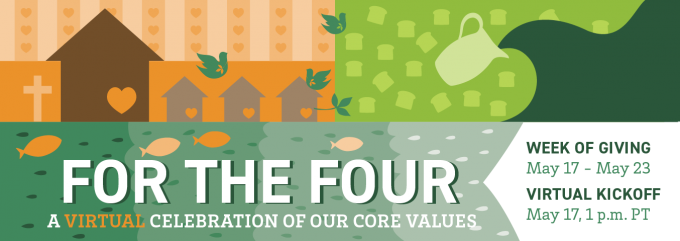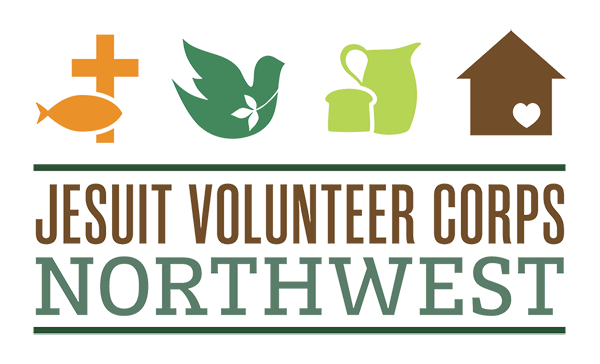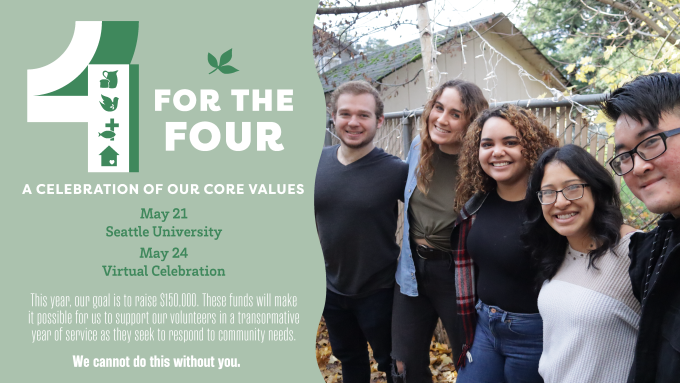If there is one thing JVs and FJVs do really well it is building communities. Community building is a skill ingrained in us at orientation and it stays with us throughout our lives.
That is not to say that our communities are perfect. I still remember – and not always fondly – the rule in our Casa de Paz community that required each of us to state our “100 percent” before a group decision was made. That statement was our opening bid of what each of us – as individuals – wanted. From that point on we – as a community – began what often was a messy, opinionated, tense, and sometimes inconclusive process in the hopes of reaching a decision in our collective best interest.
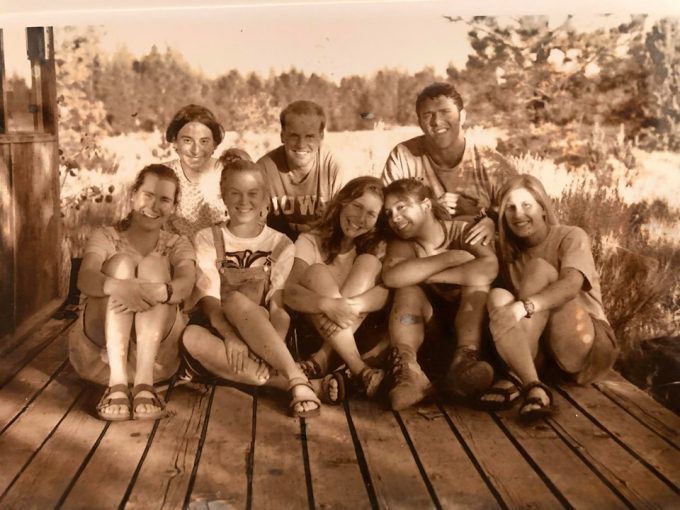
Back row (left to right): Samatha Storey, Bob Ludke, Mike Panos
Front row (left to right): Serena Scott-Ram Lubell, Bernadette McCartin Queenan, Amy Parrish, Lenore Hernandez, Shannon Lawrence
I am proud that the Casa de Paz community that came together in August 1994 has stayed true to that vision of community. The picture in this article was chosen by us acting as a community – nearly 25 years after it was taken.
It is not the perfect picture. But it is the picture that we want to share. It best represents who we were (and still are) as a community: A group of strangers who formed a loving bond that has transcended time, distance, and all the ups and downs that life has thrown at us.
The Higher Calling of Communities
The Covid-19 pandemic has shown how fragile society is. Hundreds of millions of people around the world are on the razor’s edge of basic, day to day survival. Everyone in a JV community has that harsh reality staring them in the face.
If there is a silver lining in the pandemic and associated economic catastrophe, it is that now is our moment to achieve a healthier, more prosperous, more inclusive society. The current course of humanity is not viable and people are demanding change.
As JVs and FJVs we have the one trait most needed right now: an ability to create and scale communities to achieve something enduring.
A community is a network of people who come together around an issue, idea, or an opportunity. Nelson Mandela and the African National Congress were a network formed to bring down Apartheid. Greta Thunberg has catalyzed a network of young people to address climate change. Father James Martin has created a network seeking justice for the LGTBQ community.
While networks rise and fall over time, the most consequential ones are those united around a mission to make the world better for future generations. Martin Luther King’s network of people committed to achieving social justice has had a far greater impact than the Klu Klux Klan. King had a vision for a better world. The Klan and its Confederate flag waving supporters do not.
No government, no corporation, no single institution acting alone can make our next era better than the present.
The only way problems of the magnitude facing us today will get fixed is when people and organizations with different backgrounds and perspectives collaborate. Just like the “100 percent” decision-making process in JV communities, none of this is easy. But, when done right, it is both enduring and consequential.
The Way Forward
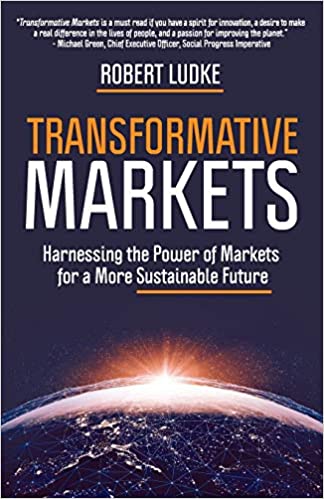
I recently published a book – Transformative Markets – with the premise that we must reimagine how we innovate, produce, and consume the goods and services we use every day so that they become sustainable. Namely, those goods and services must be made in a way that respects the human, natural, social, and financial capital that goes into them. The goal is to generate a net positive for society rather than being a cost to it.
The most effective way to do that is by harnessing the influence, knowledge, and resources of people and organizations across society through collaboration. A wonderful case in point: the low-cost Spiro Wave ventilator that was developed in just one month in response to the dire ventilator shortage in New York City during the worst of the Covid-19 virus.
How did it happen so quickly? A network of diverse actors with different talents and skills came together. The original design was developed by faculty and students at MIT. The City of New York provided a research grant of $100,000. Front line health officials shared input to refine the ventilator’s design. Honeywell Industries tapped into its global supply chain to procure the sensors necessary to make it work. The Food and Drug Administration provided a fast track review process to get it approved and in the market.
The Spiro Wave ventilator may soon find its way to other parts of the world yet to face the brunt of the pandemic, likely saving thousands of lives.
What We Can Do
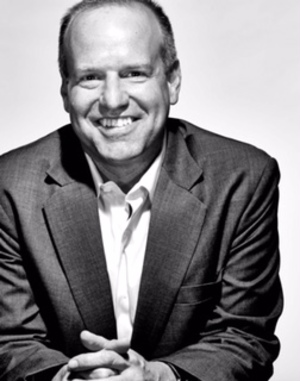
JVC Northwest has provided us with a unique talent that is at a premium right now. We are not lacking for problems to solve. If you see a wrong, form a network and fix it. All of us know how to be open to the ideas of others and find consensus for action. There is not one “magical” solution to the challenges we face today. Rather, there are many solutions that will add up to something transformative – and those solutions will come from us taking action as a community.
Let us be humble and learn from each other’s ideas and talents – that is the spirit of a true community. But let us also be bold in investing our ideas and talents in ways that make the world better.
As Paul Newman, the renowned actor, once said, “I am not running for sainthood. I just happen to think that in life we need to be a little like the farmer, who puts back into the soil what he takes out.”
We’re offering a gift of Bob’s book to the first ten NEW donors to JVC Northwest who give a gift of at least $65.00.
Make a gift today!
